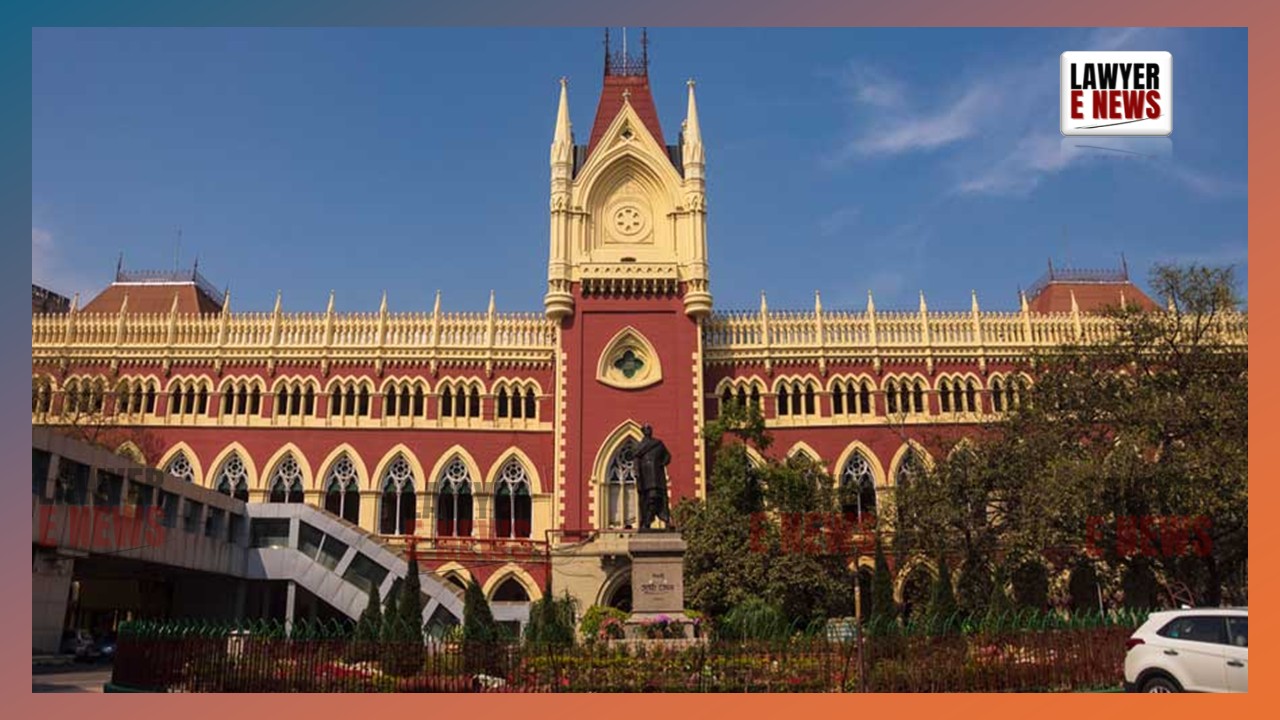-
by Admin
15 February 2026 5:35 AM



Calcutta High Court directed Husband, the appellant, to pay ₹1 lakh per month as interim alimony to his estranged wife during the pendency of their matrimonial appeal. The division bench of Justice Sabyasachi Bhattacharyya and Justice Uday Kumar, while deciding CAN 2 of 2024, criticized the husband for suppressing his true income and failing to comply with the disclosure requirements mandated in Rajnesh v. Neha, (2021) 2 SCC 324.
The court noted that in earlier affidavits submitted during trial, the husband disclosed his monthly income as ₹11,85,730, but in his current affidavit, he claimed his income was only ₹3 lakh per month, with an additional fluctuating bonus of ₹2.73 lakh. The court found this reduction unsubstantiated and rejected the husband's claim of a decline in income.
“The remuneration of a professional of the stature and qualification of the appellant, in the present case, a Cost and Management Accountant, cannot decrease with time unless there is some specific and categorically disclosed reason for the same. Here, no such explanation has been given by the husband,” observed the court. [Para 25]
The court emphasized that the husband’s failure to provide three years’ income tax returns and bank statements, as required under the Supreme Court’s guidelines in Rajnesh v. Neha, further reinforced the finding of suppression of income.
The court awarded interim alimony based on the principle of proportionality, stating that alimony must reflect the financial status of the husband and ensure that the wife’s standard of living is commensurate with his.
“The question is not what are the actual daily requirements of the wife but as to what is the perceived requirement of the wife, taking into account not only her daily bread but her other necessities commensurate with the status of both spouses,” the court observed. [Para 29]
The court ruled that the ₹1 lakh per month claimed by the wife was reasonable, as it constituted less than one-fifth of the husband's disclosed monthly income of ₹11,85,730. Even if the husband's revised claim of ₹5.73 lakh (including bonus) were considered, the alimony would still be justified.
The husband argued that he was financially burdened with student loans of ₹14.14 lakh and ₹20.17 lakh for the couple’s twin adult sons. The court dismissed this argument, clarifying that since the sons had attained majority, they were independently responsible for their loans.
“The husband cannot take shelter under the student loans payable by his major sons to deprive the wife of her legitimate alimony,” ruled the court. [Para 37]
The court directed the husband to pay arrears of ₹5 lakh for the period from September 2024 to January 2025 in two equal installments:
• First installment by January 31, 2025
• Second installment by February 28, 2025
Future alimony payments of ₹1 lakh per month were ordered to commence from February 2025, payable by the 10th of each month.
The court observed non-compliance with the Supreme Court's landmark judgment in Rajnesh v. Neha, which requires spouses to file comprehensive affidavits of assets and liabilities. The husband failed to disclose his complete financial details, including three years’ income tax returns and bank statements.
The court disposed of CAN 2 of 2024 on contest and scheduled the main matrimonial appeal for a hearing in February 2025.
This judgment underscores the judiciary’s strict stance against suppression of income in matrimonial disputes and affirms the principle that alimony must ensure a dignified standard of living for the dependent spouse.
Date of Judgment: January 13, 2025
